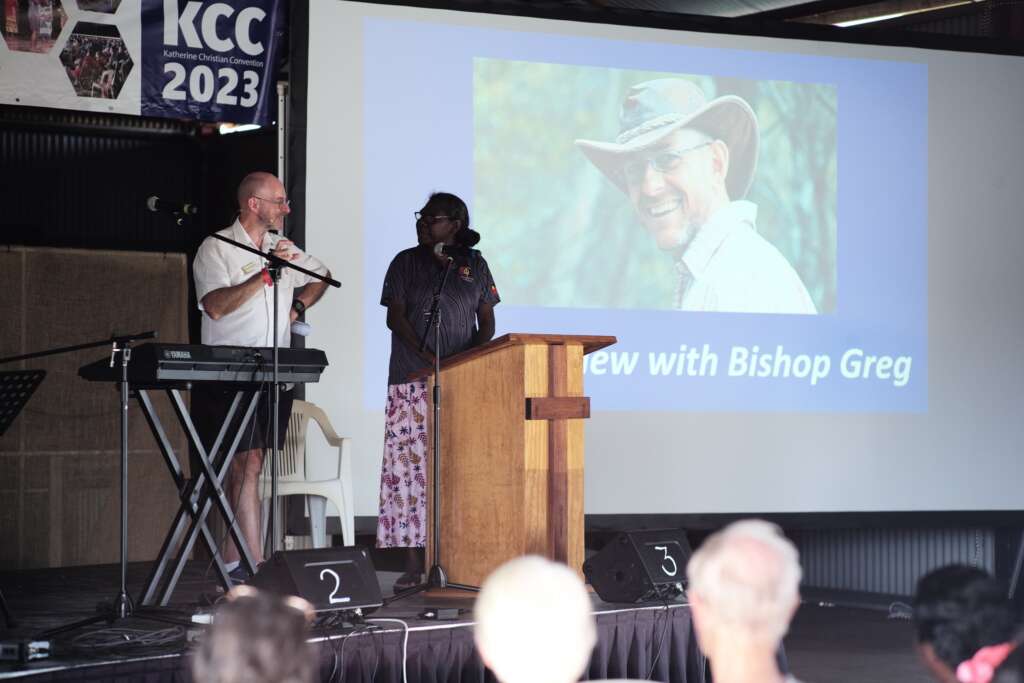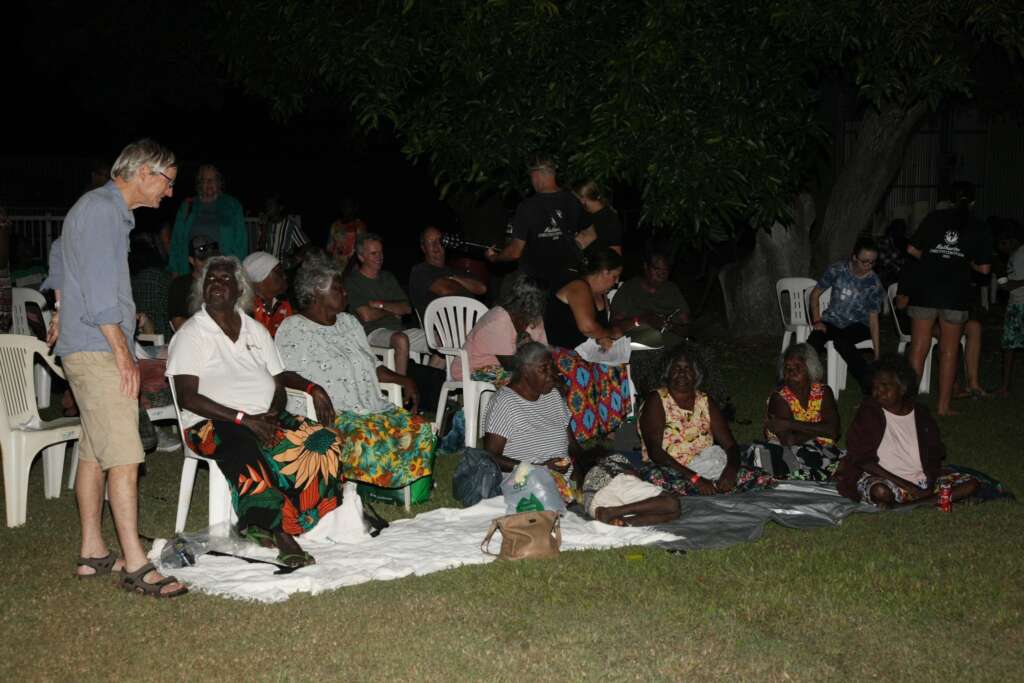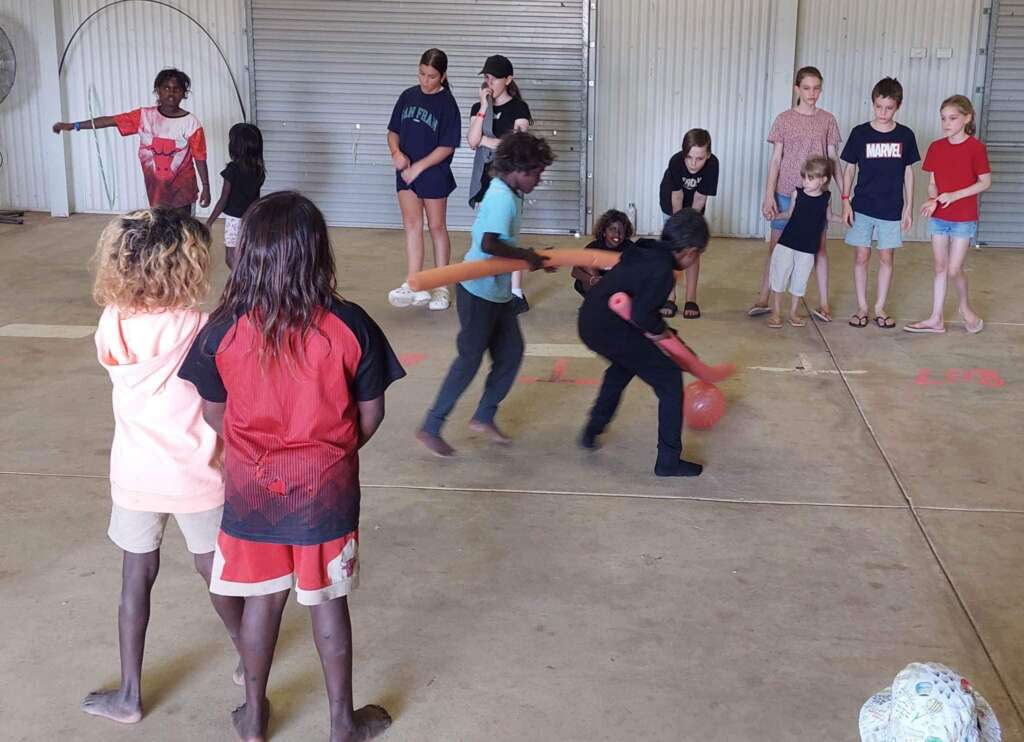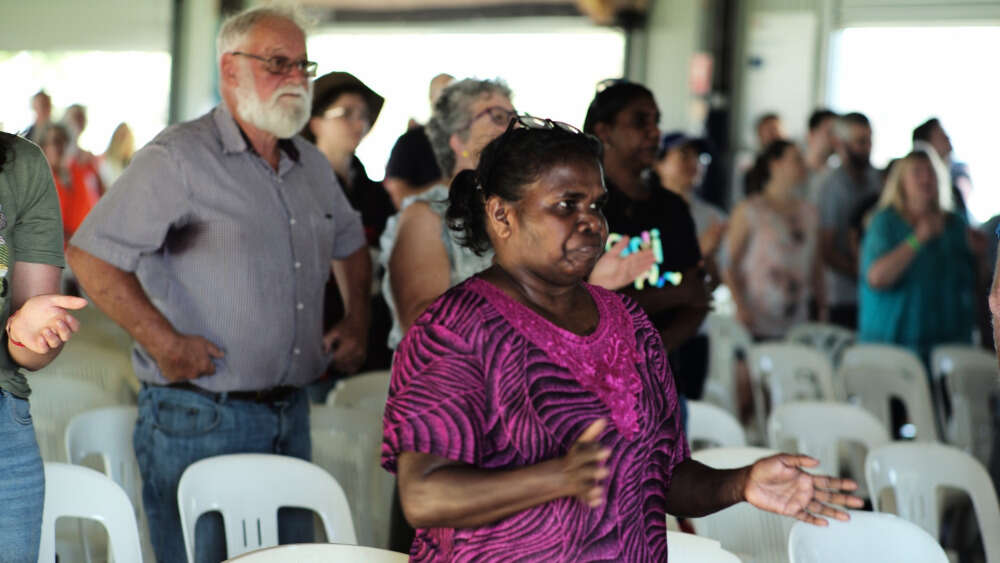Working together for the gospel in the Top End
50 years of Aboriginal and non-Aboriginal Christians coming together
Katherine Christian Convention (KCC) is a great way to begin the Dry Season in the Top End. The Dry officially begins on 1 May, and the first weekend in May is a public holiday, so it is a happy alignment – unless there have been late rains and roads are still blocked by floodwater, as happened this year.
In a normal year, people come from all over the Top End, and beyond, for KCC – Darwin, Arnhem Land Aboriginal communities, the Katherine region, Tennant Creek and increasingly in the last decade or more, volunteers from “Down South”. In recent years, there have been more than 500 people attending.
KCC has been running for more than 50 years. It has evolved during that time, but has always been bicultural to some extent, with Aboriginal and non-Aboriginal Christians coming together to have fellowship, to be fed by Bible teaching and to express their oneness in Christ. Many times, the Bible input has been given by more than one person – combining Aboriginal and non-Aboriginal speakers, including local pastors and other church leaders, Bible translators and teachers at Nungalinya College Darwin.
As Christians from across the Territory, and beyond, we are bound together in a common task …
This year, I had the privilege of leading the four Bible studies on Philippians, under the title “Working Together for the Gospel”. We did not cover the whole of this beautiful and warm letter from Paul to the church he had planted, but by choosing a short passage from each chapter, we considered the major themes. The point is that as Christians from across the Territory, and beyond, we are bound together in a common task, just as Paul was with the Philippians. There was mutual support and encouragement then, as there is now, as we celebrate God’s rescuing work through Jesus, and understand more clearly what it means to follow Jesus.
We know what a blessing it is to be in God’s family, and we want others to join us in the life that God’s people share together. We recognise, as Paul reminds us, that there are big challenges along the way, but we trust that God will bring to completion the work that he has begun in us. Partnership can involve prayer, care, financial support and visits, as we all recognise the place of Jesus as supreme, downsizing all other loyalties.

Bishop Greg Anderson is interviewed by Marlene Andrews (Teaching Assistant at Nungalinya College) at KCC.
Because of the launch of the Plain English Version (PEV) mini-Bible (which includes almost all of the New Testament and some parts of the Old Testament), I used this as the text, as requested by the KCC committee. The PEV has been designed primarily for Aboriginal people whose own mother tongue is not English, and uses English in a way that mirrors the speech patterns of traditional Top End languages. This includes grammar (for example, no passive-voice constructions), vocabulary (for example, limiting the use of abstract nouns) and sentence construction (for example, shorter sentences with fewer embedded clauses).
Many Aboriginal people in the Katherine region speak the new Aboriginal language Kriol, and because so much Kriol vocabulary comes from English, it is often not too difficult for English speakers to understand (especially when it is a non-first-language Kriol speaker like me using it). But Kriol is not a lingua franca for Aboriginal people across the Top End. There were also Aboriginal people at KCC from Groote Eylandt and Western Arnhem Land, which are not Kriol-speaking areas. Using the PEV created something of a level playing field for everyone attending, while not being any one group’s heart language.
Aboriginal church leaders come together and share the joys and challenges in their own communities.
Using the PEV text also reminded me how easily we slip into Christian dialect jargon. Paul says in Philippians 3 and 4: “Rejoice.” PEV expresses this as “be happy.” For somebody used to English translations, this sounds too simple, but it is a word that needs no further explanation. I don’t imagine that Paul’s original readers needed the word he used here to be explained – it was a word they understood.
One of the regular ingredients at KCC, at least for the past 20 years, is the celebration nights where groups or individuals present Christian songs or dances. People from remote communities enjoy being able to share their own Christian artistic expression in this way with everybody else, and often the celebration nights continue for many hours. A favourite form is what we call “action songs” (or just “action”). These days this usually consists of a commercially released Christian song being played from a smartphone, and the dancers doing actions that underline the meaning of the key words in the song. This taps into traditional public dance forms, particularly for women: women would remain in one place along the edge of the dance ground (while men danced across the whole length of the dance ground), performing unified actions with their arms while gently kicking up the dust with their foot movements.

Nightly celebrations are a highlight of the weekend convention.
Another regular feature is a forum for Aboriginal church leaders to come together and share the joys and challenges in their own communities. Every community is unique, but there is a lot in common across all of them. In particular, there is a great desire to reach out with the gospel more effectively to men and to young people. There is also a desire to have more resources available to help people engage with the Bible and to think about what it means to have a contextualised approach to being Christians in the remote Top End.

Kids in action at KCC.
In recent months, there has been considerable media attention given to trouble, violence and crime in the Northern Territory. KCC demonstrates such a different situation, with people from so many different communities and backgrounds coming together peacefully and with real enjoyment in being together, because they have given themselves to Jesus and are trying to live as his followers. Two days together seems so short a time and many might be glad to have a whole week for the convention. But we are grateful for this annual opportunity to be together and to express our unity in Christ across so much human variety.
Greg Anderson is the Anglican Bishop of the Northern Territory.
Email This Story
Why not send this to a friend?


